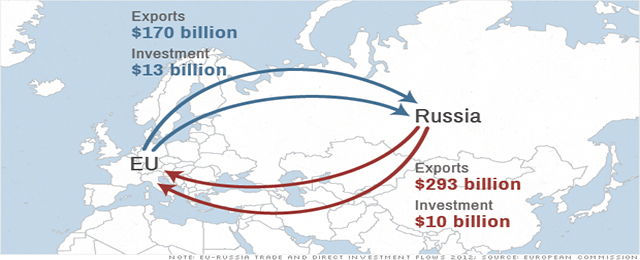The European Union is studying much harsher sanctions on Russia, as revealed by The Daily Telegraph, and the economic repercussions of the current Ukraine quasi-civil war are starting to be felt. The change has been such that the International Monetary Fund (IMF) has established today that political risk is back on the world stage.
“Geopolitical risks have risen relative to April: risks of an oil price spike are higher due to recent developments in the Middle East while those related to Ukraine are still present”, explains the Fund in its review of its previous world growth forecasts.
Of particular concern is the political risk in Russia, the country that has seen its growth perspectives cut the most (1.1%), together along with the United States.
“Activity in Russia decelerated sharply as geopolitical tensions further weakened demand”, states the Fund. Putin’s intervention in Ukraine has actually wiped out virtually all of Russia’s economic growth in 2014, even according to the Fund’s traditionally conservative standards. Russia is not the only geopolitical risk that the world economy confronts. The situation in Iraq “could lead to sharply higher oil prices“, although the IMF does not is incorporate that possibility into its central scenario and actually forecasts a 5 percent price decrease in 2015.
According to a high-ranking officer at the Fund, “the risk of an oil crisis seems to be limited, but not negligible.”
Add to this cocktail the withdrawal of the monetary stimulus in the United States, the risk of deflation in the Eurozone and the debt in the developing world and the scenario for the second half of the year is becoming unexpectedly cloudy.






Be the first to comment on "Risk: Geography trumps Economy"